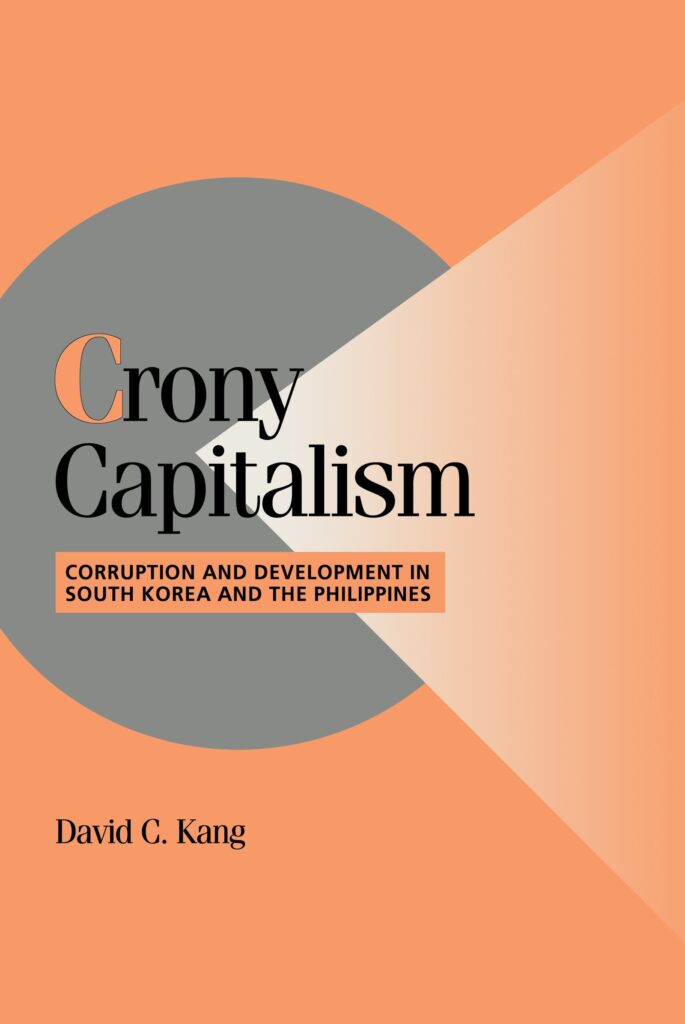
Crony Capitalism: Corruption and Development in South Korea and the Philippines by David C. Kang is a book that challenges the conventional wisdom that corruption hinders economic development. Kang argues that corruption is not a simple phenomenon, but a complex and context-dependent one, that can have different effects on different countries and sectors.
Kang compares the cases of South Korea and the Philippines, two countries that have similar levels of corruption, but different outcomes in terms of growth and development. He shows that corruption in South Korea was more centralized and disciplined, while corruption in the Philippines was more fragmented and chaotic. He also shows that corruption in South Korea was more aligned with the state’s developmental goals, while corruption in the Philippines was more detrimental to the public interest.
Kang uses a variety of sources and methods, such as historical analysis, statistical data, interviews, and surveys, to support his arguments. He also provides a theoretical framework that explains how corruption can be influenced by political institutions, economic structures, social norms, and historical legacies. He offers a nuanced and balanced perspective on the role of corruption in development, acknowledging both its positive and negative aspects.
The book is a well-written and well-researched contribution to the literature on corruption and development. It is also a relevant and timely read for anyone interested in the political economy of Asia and beyond.
